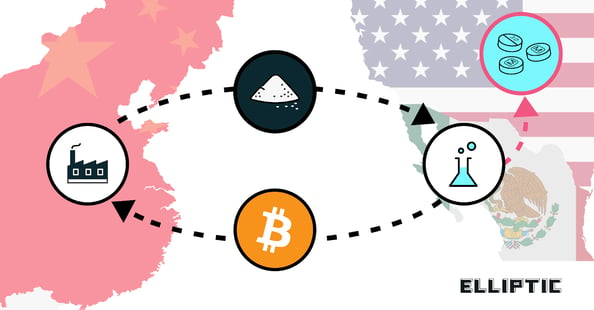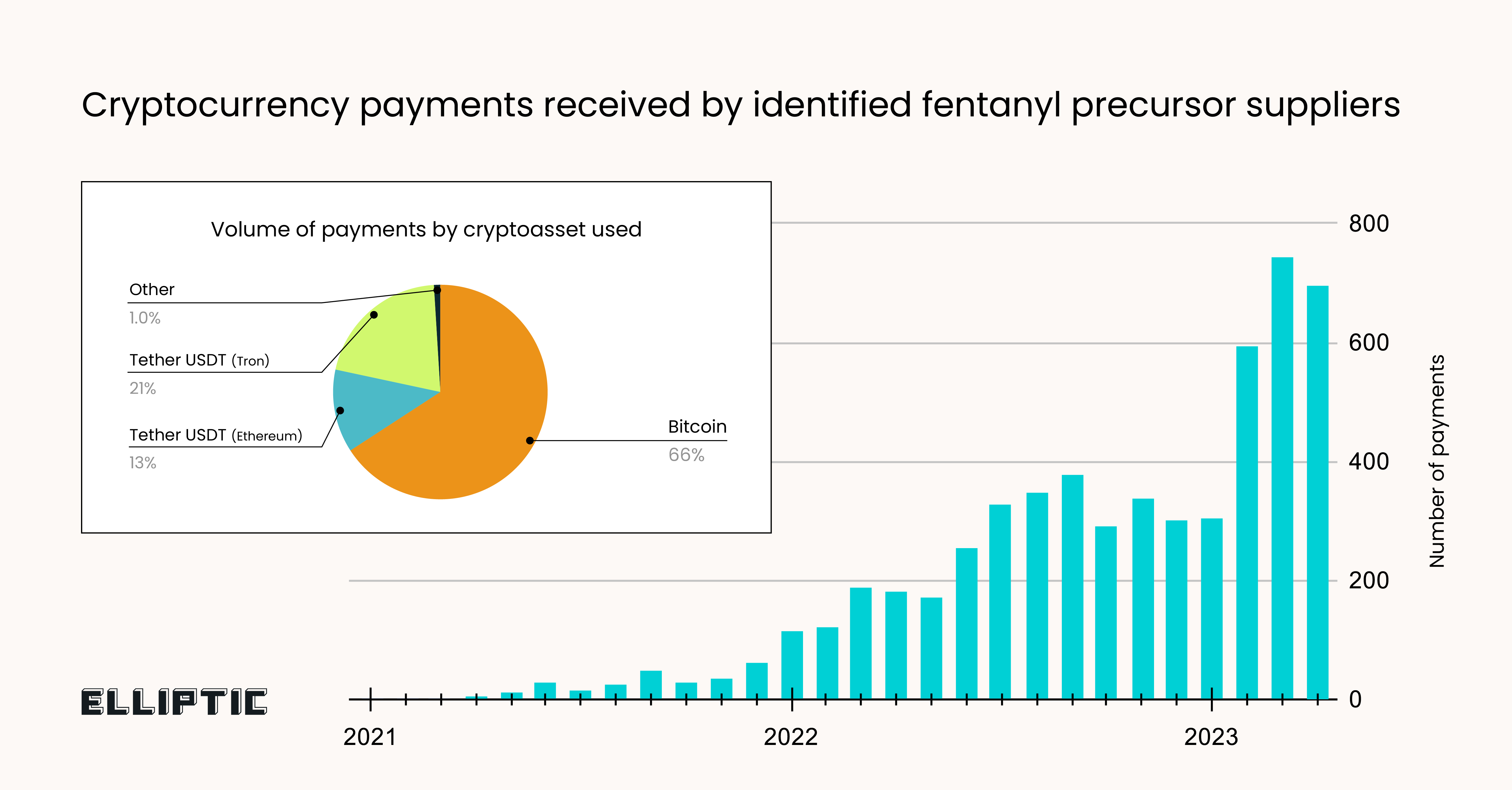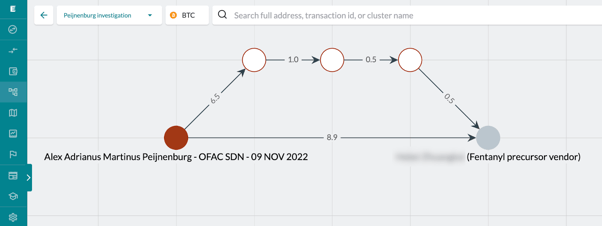
In a groundbreaking investigation, researchers at Elliptic have uncovered a disturbing trend in the illicit fentanyl trade using crypto payments. More than 90 China-based companies have been identified as willing suppliers of fentanyl precursors. An astonishing 90% accept cryptocurrency payments, primarily in Bitcoin and USDT. The study also revealed that many of these businesses have been shipping the same chemicals to Mexico, further fueling the fentanyl epidemic.

$27 Million In Crypto Payments
Elliptic’s blockchain analysis tools shed light on the extent of this illicit activity. The cryptocurrency wallets associated with these Chinese companies have received over $27 M in payments. It indicates a staggering increase of 450% year-on-year. To put this into perspective, $27M worth of fentanyl precursors could generate fentanyl pills with a street value of $54B.

Perhaps even more alarming is that despite a ban on fentanyl production in China since 2019, many surveyed businesses were also willing to supply it. This underscores the audacity of these companies and their disregard for international regulations.
The fentanyl crisis has reached unprecedented levels in the US. It’s over doses have become the leading cause of death among individuals aged 18 to 45. Cheaper to produce than heroin and 50 times more potent, fentanyl has become a highly profitable venture for drug cartels globally.

China, once the main source of illicit fentanyl, implemented regulations in 2019 to curb its export. However, this move has only prompted Mexican drug cartels to step in and seize the market. These cartels are now manufacturing their own fentanyl using precursors imported from China, exacerbating the crisis.
Recognizing the severity of the situation, the US government has intensified its efforts to disrupt the financial activities of fentanyl traffickers. In April, the White House announced plans to expand accountability measures, including financial sanctions, to combat these criminals. Subsequently, the US Department of the Treasury sanctioned individuals and businesses in China. The ban comes due to involvement in supplying precursor chemicals to Mexican drug cartels.
Elliptic’s research team identified over 90 China-based chemical companies that openly offered fentanyl precursors and accepted crypto as payment. Disturbingly, some suppliers even boasted about their sales to Mexican customers. Cryptocurrencies, particularly Bitcoin, have emerged as the preferred mode of payment for these transactions.
Blockchain Analysis Links Bitcoin Payments to Supplier
The blockchain analysis by Elliptic further highlighted the involvement of a known fentanyl trafficker. Alex Peijnenburg, sanctioned by US authorities in November 2022, made substantial Bitcoin payments totaling $84,598 to one of the Chinese suppliers.

The use of cryptocurrencies by these companies is surprising, considering China’s strict stance against crypto. While crypto exchanges are not allowed within the country, most chemical suppliers accepting crypto utilize accounts at exchanges based outside China. This indicates the possible involvement of intermediaries in converting cryptocurrency payments to renminbi.
Elliptic has taken immediate action by notifying the exchanges used by these companies and flagging numerous crypto addresses associated with the illicit activity. By working closely with compliant exchanges and utilizing blockchain monitoring systems. Such as those offered by Elliptic, the trade in fentanyl precursors can be disrupted, preventing crypto-currencies from being exploited in this deadly trade.
The battle against the fentanyl crisis requires a multi-faceted approach. By targeting the financial networks and gateways involved in the illegal trade, authorities can significantly impede the operations of drug cartels and protect countless lives from the devastating impact of this synthetic opioid.








